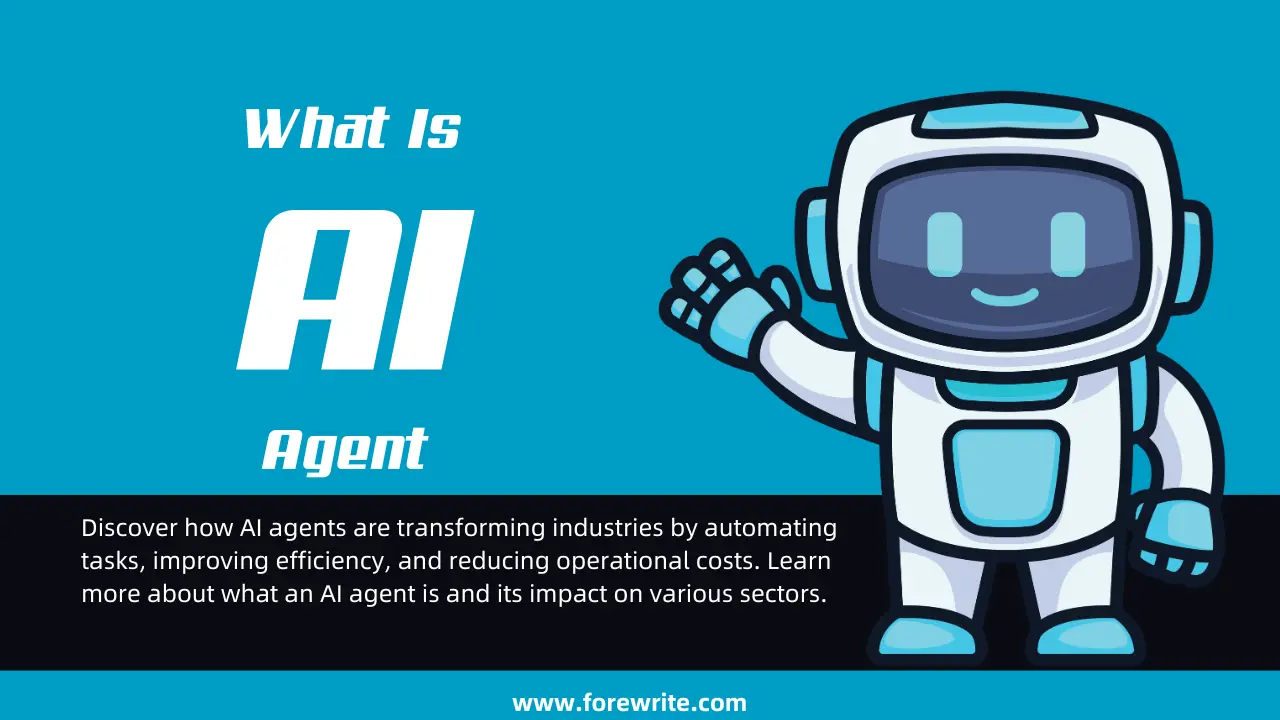What is an AI Agent? At its core, an intelligent agent perceives its environment and takes autonomous actions to achieve specific goals, often improving its performance by learning or acquiring knowledge. These artificial intelligence agents, ranging from software-based to physical entities, are crafted using advanced AI techniques to process information and respond effectively.
Exploring AI agents unveils a world where text generation, virtual assistants, and large language models transform industries by automating tasks, enhancing efficiency, and significantly reducing operational costs. As we delve deeper into the capabilities and applications of AI agents, we uncover their potential to revolutionize customer service, healthcare, finance, and more.
Understanding the Types and Components of AI Agents
Simple Reflex Agents
Simple reflex agents operate on a basic principle: they react to immediate percepts. These agents follow a condition-action rule, meaning they respond directly to what they perceive at the moment without considering the history of perceptions. This approach is functional in fully observable environments where every aspect is visible and no historical data is necessary for decision-making. However, their simplicity leads to limitations such as a lack of adaptability and difficulty in handling unobserved elements of the environment.
Model-Based, Goal-Based, and Utility-Based Agents
Moving beyond simple reflex agents, there are model-based reflex agents that maintain an internal state to track changes over time, allowing them to operate effectively in partially observable environments. They use a model of the world to update their state and make decisions based on this updated state. Goal-based agents expand on this by having specific goals that guide their decision-making process. They evaluate sequences of actions to achieve their goals, making them more flexible in dynamic environments. Utility-based agents incorporate a utility function to evaluate the desirability of different states, helping them to choose the most beneficial action according to defined criteria.
Learning and Hierarchical Agents
Learning agents exhibit the capability to adapt based on past experiences, enhancing their knowledge and behaviors over time. They are structured with components like a learning element, which adjusts the agent’s knowledge, and a performance element, which chooses actions based on the learned knowledge. Hierarchical agents, on the other hand, are organized in layers, with higher-level agents managing lower-level ones, which allows for complex and scalable agent architectures. These agents can perform various functions such as perceiving dynamic changes, reasoning, and problem-solving, which are essential for complex, multi-agent systems.
Real-World Applications and Examples of AI Agents
AI agents have become integral in various industries, revolutionizing operations and enhancing user experiences. In healthcare, AI agents employ advanced image recognition algorithms to diagnose medical conditions, improving the accuracy and speed of patient care. The financial sector benefits significantly from AI agents, which detect fraud by analyzing patterns and anomalies in financial data, ensuring security and trust in financial transactions.
In the automotive industry, AI agents facilitate real-time decision-making and navigation, crucial for the development and operation of autonomous vehicles. These agents process complex environmental data to make instantaneous and safe driving decisions. Additionally, AI-powered virtual assistants have transformed customer service, providing immediate responses to customer inquiries, which enhances customer satisfaction and streamlines service operations.
The gaming industry also utilizes AI agents to create more immersive experiences. These agents are fundamental in developing games with virtual reality (VR) and augmented reality (AR) elements, offering players enhanced interactive experiences. Moreover, AI agents contribute to software development by generating and improving code, assisting in debugging, and managing version control, thereby increasing efficiency and reducing errors in software projects.
Benefits of AI Agents for Businesses and Consumers
AI agents significantly enhance business operations and consumer interactions through various capabilities. Firstly, they automate essential business processes such as sales, marketing, and customer support, leading to increased efficiency and cost savings. These intelligent systems operate around the clock, providing data-driven insights and improved decision-making, which are crucial for maintaining competitive advantage.
Furthermore, AI agents improve user experiences by facilitating intuitive and engaging human-AI interactions. They are equipped to handle complex tasks, offer reasoning and planning capabilities, and provide user-friendly interfaces. This adaptability allows AI agents to integrate seamlessly with different systems and databases, enhancing the consistency and personalization of customer interactions.
In customer service, AI agents like chatbots are transformative, offering 24/7 support and enabling instant responses to customer inquiries. This not only eliminates wait times but also ensures a consistent support experience across various communication channels, including email, websites, and messaging apps. Moreover, these agents can deliver personalized experiences and proactive customer service, significantly enhancing customer satisfaction and loyalty.
Future Trends and Developments in AI Agent Technology
Advanced Cognitive Capabilities and Autonomous Operations
Researchers are pushing the boundaries of AI by developing agents with advanced cognitive capabilities, allowing them to “think” through inference stages and gameplay-style value iteration before making decisions. These enhanced cognitive processes enable AI agents to inspect and correct their output, which is crucial for improving code quality and planning complex tasks. This evolution is evident as AI agents move from being mere supportive tools to autonomous entities capable of independently executing tasks, as highlighted by Professor Andrew Ng.
Integration and Teamwork Simulation
The future of AI technology sees agents not only performing individual tasks but also working in teams. AI agents are being designed to autonomously plan and execute complex tasks, assigning roles among different agents to simulate real-world teamwork. This capability is supported by AI’s ability to leverage tools like web page searches and code execution, enhancing productivity across various domains. As AI agents become more integrated into corporate frameworks, they unlock and exploit corporate knowledge, driving broader practical applications and increasing autonomy in diverse areas.
Open Platforms and Ethical Considerations
The infrastructure for AI agents is becoming increasingly open, which fosters the creation of more sophisticated assistants and autonomous entities. This openness is pivotal for the continuous evolution of AI technology, allowing for the development of agents with enhanced personalization, predictive support, and ethical transparency. As AI platforms evolve, they not only improve in functionality but also their ethical frameworks, ensuring that the advancements in AI agent technology are aligned with societal norms and values.
FAQs
Q1. What benefits do AI agents provide?
AI agents bring numerous benefits including increased efficiency and scalability, improved customer experiences through personalization, 24/7 service availability, cost reductions, and the ability to provide data-driven insights. These advantages help businesses make well-informed decisions and maintain a competitive edge.
Q2. How are AI agents applied in various industries?
AI agents are utilized in a broad range of industries for different purposes. One notable application is in autonomous vehicles, such as self-driving cars and drones. These AI agents enable the vehicles to understand their surroundings, make autonomous decisions, and navigate safely without human input.
Q3. What are the different types of AI agents?
There are five main types of AI agents: simple reflex agents, model-based agents, goal-based agents, utility-based agents, and learning agents. These categories range from the simplest to the most complex, each with unique capabilities and functions.
Q4. What is the concept of artificial intelligence and its applications?
Artificial intelligence involves mimicking human intelligence processes through machines, particularly computer systems. AI finds application in various fields including expert systems, natural language processing, speech recognition, and machine vision, among others.




